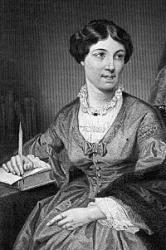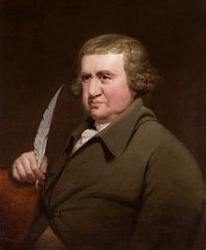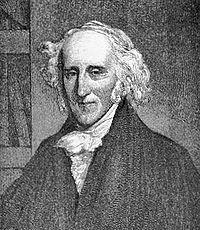Planning worship?
Check out our sister site, ZeteoSearch.org,
for 20+ additional resources related to your search.
- |
User Links
Person Results
‹ Return to hymnal



Export as CSV
Harriet Martineau

1802 - 1876 Person Name: Anon. Hymnal Number: 728 Author of "Sweet is the prayer whose holy stream" in The Voice of Praise Martineau, Harriet, was born at Norwich, June 12, 1802, and died at Ambleside, June 27, 1876. Best known as the writer of Illustrations of Political Economy, Retrospect of Western Travel; two novels, Deerbrook and The Hour and the Man; Eastern Life, Past and Present; a History of the Thirty Years’ Peace, and various other works. Her first publication was a book of Devotional Exercises, with hymns appended to each Exercise, and her hymns also belong to what she speaks of in the Autobiography as her "Unitarian" period. Five of them appeared in A Collection of Hymns for Christian Worship, printed in 1831 for the congregation of Eustace Street, Dublin, and edited by her brother, the Rev. James Martineau.
1. All men are equal in their birth. Human Equality.
2. Lord Jesus! come; for here. Jesus desired. Sometimes given as(1) "Come, Jesus, come, for here"; (2) and "Thy kingdom come, for here."
3. The floods of grief have spread around. In Affliction.
4. What hope was thine, O Christ! when grace. Peace.
5. When Samuel heard, in still midnight . Samuel.
The Rev. J. R. Beard's Collection 1837, contains 1, 2, 4 and 5, and:—
6. The sun had set, the infant slept. Gethsemane. The Rev. W. J. Fox's Hymns and Anthems, 1841, contains No. 1, and
7. Beneath this starry arch. Progress . [Rev. Valentine D. Davis, B.A.]
-- John Julian, Dictionary of Hymnology (1907)
Harriet Martineau
T. H. Stockton
1808 - 1868 Hymnal Number: 79 Author of "Can truth divine fulfillment fail?" in The Voice of Praise Stockton, Thomas Hewlings, D.D. (Mount Holly, New Jersey, June 4, 1808--October 9, 1868, Philadelphia). The son of William S., founder and editor of The Wesleyan Repository, 1821, and Elizabeth S. (Hewlings) Stockton. Largely educated in private schools, after studying medicine for a time and spending some five years following literary pursuits, he was admitted to the Maryland Annual Conference of the Methodist Protestant Church. A voluminous writer, he became one of the most eloquent preachers of the nineteenth century in America. When but twenty-five years of age he was elected chaplain of the House of Representatives, Congress of the United States, serving in that capacity the sessions of 1835-1836, 1859-1860, 1861-1862, and in 1862 was chosen chaplain of the United States Senate. It was he who offered the memorable prayer at the dedication of the Gettysburg National Monument.
Although much in the public eye as an eminent preacher, lecturer, and leader in all forms of social progress, he insisted his name be used with neither prefix nor suffix. He did not acknowledge the degree of Doctor of Divinity conferred on him by Gettysburg College and refused to accept the presidency of Miami College, Oxford, Ohio, when unanimously elected to that position by its board of trustees. Because of his opposition to denominationalism he twice resigned his assigned pastorates and organized, in Philadelphia and Cincinnati, "Societies of Brotherly Love," designed to follow the pattern set by John Wesley for his early converts.
Dr. Stockton compiled the Methodist Protestant Hymn-Book of 1837, the first Methodist hymnal to accredit the hymns to their respective authors. In addition to numerous sermons and speeches, his published works include:
Floating Flowers from a Hidden Brook, 1844
Ecclesiastical Opposition to the Bible, 1853
Stand Up, A Christian Ballad, 1858
Poems, 1862
"Stand up for Jesus," from A Christian Ballad which included autobiographical notes and some other poems, was suggested by the same incident which gave rise to the George Duffield, Jr., hymn with the same opening line. Although set to music several times it gave way to the latter.
--Robert G. McCutchan, DNAH Archives
T. H. Stockton
W. E. Miller
1766 - 1839 Person Name: Miller Hymnal Number: 516 Author of "Our souls, by love together knit" in The Voice of Praise
W. E. Miller
Samuel Ecking
1757 - 1785 Person Name: Anon. Hymnal Number: 127 Author of "Peace, troubled soul, thou need'st not fear!" in The Voice of Praise Ecking, Samuel, a Baptist, born at Shrewsbury, Dec. 5, 1757, died Jan. 16, 1785, contributed hymns to the Gospel Magazine, in 1778 and 1779, under the signature of "S. E—k—-g." Of these the hymn, "Peace, peace, my soul," is in common use. This hymn is also found in his Essays on Grace, Faith, and Experience.
[William T. Brooke]
-- John Julian, Dictionary of Hymnology (1907)
Samuel Ecking
Erasmus Darwin

1732 - 1802 Person Name: Darwin Hymnal Number: 637 Author of "For me, O Lord, whatever lot" in The Voice of Praise Darwin, Erasmus, M.D., 1732-1802. Physician and poet, of Lichfield, author of The Botanic Garden , 1781, &c. He was a friend of Dr. Priestley's, and in sympathy with many of his views, although not permanently connected with any church. His hymn on God, the disposer of events, “The Lord, how tender is his love," is in Kippis, Martineau’s Hymns for the Christian Church and Home & Martineau’s Hymns of Praise and Prayer gives another hymn on Immortal Nature, “Roll on, ye stars, exult in youthful prime."
--John Julian, Dictionary of Hymnology (1907)
Erasmus Darwin
John Langford
1690 - 1790 Person Name: Langford Hymnal Number: 241 Author of "Now begin the heavenly theme" in The Voice of Praise Langford, John. The time and place of this person's birth are unknown. He is said to have been connected with the early Methodists, and then to have become a member of the Baptist church in Eagle Street, London. In 1765 he began to preach in a chapel called Blacksfields, in Gainsford Street, London, and in the following year was ordained pastor. There he remained for 12 years, then removed to Rose Lane, Ratcliff, and afterwards to a small place in Bunhill Row. But his imprudent conduct compelled him at length to give up preaching. He inherited considerable property, but squandered it in extravagance, and died in great wretchedness about 1790.
J. Langford published a few Sermons, and, in 1776, a collection of Hymns & Spiritual Songs, which reached a second edition The excellent and well-known hymn "Now begin the heavenly theme," has been ascribed to him. It is in his collection; but since, in the preface to his second edition, he tells us that he has marked his own hymns with an asterisk, and this one is not so marked, it is clearly not of his composition. [Rev. W. R. Stevenson, M.A.]
--John Julian, Dictionary of Hymnology (1907)
John Langford
Menzies Rayner
1770 - 1850 Person Name: M. Rayner Hymnal Number: 342 Author of "Hail! source of light, of life, and love" in The Voice of Praise Rayner, Rev. Menzies. (South Hampstead, New York, November 23, 1770--November 22, 1850, New York, N.Y.). He entered the ministry of the Protestant Episcopal Church and served as rector of parishes in Elizabethtown, New Jersey and in Huntington and New Hartford, Connecticut. In middle life he transferred his membership to the Universalist denomination and held pastorates in Hartford, Conn.; Portland, Maine; and Schenectady, N.Y. While in Hartford he edited a periodical called The Inquirer, and in Portland another called The Christian Pilot. His hymn beginning "Hail, Source of light, of life and love" is included in Church Harmonies: New and Old, 1895.
--Henry Wilder Foote, DNAH Archives
Menzies Rayner
Jane Cotterill
1790 - 1825 Person Name: Cotteril Hymnal Number: 678 Author of "O Thou! who hast at thy command" in The Voice of Praise Cotterill, Jane, née Boak, daughter of Rev. John Boak, and mother of the Right Rev. Henry Cotterill, Bishop of Edinburgh; born in 1790, married 1811 to the Rev. Joseph Cotterill; died 1825. Mrs. Cotterill contributed to the Appendix to the 6th ed. of Cotterill’s Selection, 1815, the following hymns:—
1. "O! from the world's vile slavery," (For Holiness). 2. "O Thou! Who hast at Thy command," (For Resignation). These hymns were repeated in Montgomery's Christian Psalmist, 1825, and Mrs. Cotterill's name was appended thereto for the first time. Their use is not extensive. The first, "O! from the world's," &c, is found in Kennedy, 1863, No. 521, as, "From this enslaving world's control," the alterations being by Dr. Kennedy.
--John Julian, Dictionary of Hymnology (1907)
Jane Cotterill
James Freeman

1759 - 1835 Person Name: Freeman Hymnal Number: 979 Author of "Lord of the worlds below!" in The Voice of Praise Freeman, James, D.D. Born at Charlestown, Mass., April 22, 1759, and graduated at Harvard, 1777. He was "the first avowed preacher of Unitarianism in the United States.” In 1782 he was "Reader" in King's Chapel, and assisted or guided that historic parish in its change from Episcopacy to the then new ways in teaching and discipline. In 1787 he was "ordained," and retained the pastorate of the King's Chapel till 1826. He altered its Liturgy, and prepared for its use the King's Chapel Collection of Psalms & Hymns, 1799. Died Nov. 14, 1835. His hymn, "Lord of the worlds below," is based on Thomson's "Hymn on the Seasons." It appeared in the Psalms & Hymns, 1799, and is found in various collections. Original text in Putnam's Singers and Songs of the Liberal Faith,1875. [Rev. F. M. Bird, M.A.]
--John Julian, Dictionary of Hymnology (1907)
James Freeman
Mary Anne Roscoe Jevons
1795 - 1845 Person Name: Bonar Hymnal Number: 867 Author of "Thou must go forth alone, my soul!" in The Voice of Praise Roscoe, Mary Ann, daughter of William Roscoe, was born in 1795, married to Thomas Jevons, 1825, and died in 1845. She edited Poems for Youth, by a Family Circle, Lond., 1820, to which her brothers and sister contributed. From 1831 she also edited The Sacred Offering, an Annual of original and selected poetry (Liverpool, D. Marple & Co.). Her 7 hymns were published in her Sonnets and other Poems, chiefly Devotional, in 1845. Of her hymns three are still in common use:—
1. [Now] O let your mingling voices rise. Christmas.
2. Thou must go forth alone, my soul. Death Anticipated.
3. When human hopes and joys depart. In Trouble and Affliction.
Of these No. 3 was first published in her Poems for Youth, &c, 1820.
--John Julian, Dictionary of Hymnology (1907)
Mary Anne Roscoe Jevons


 My Starred Hymns
My Starred Hymns


